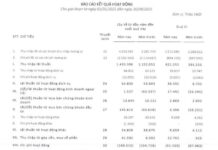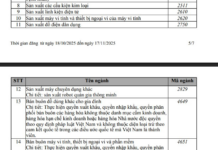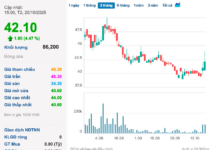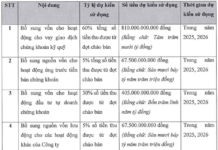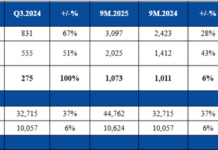Article 48 of the Law on Real Estate Business stipulates that real estate project investors, real estate or property service enterprises must receive contract payments from customers through a bank account in Vietnam. Penalties and compensation for delays in payment or handover must be agreed upon by both parties and stipulated in the contract.
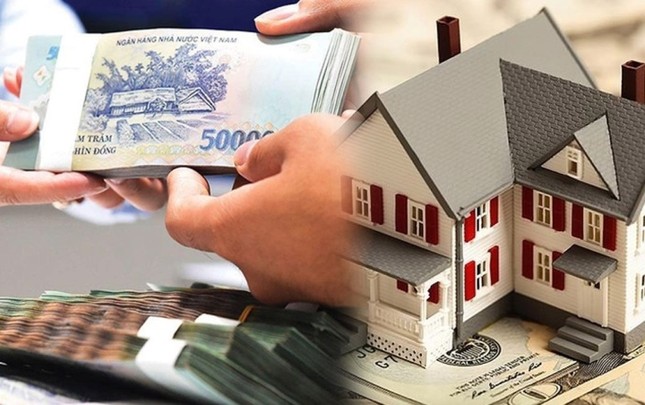
According to a representative of the Department of Housing and Real Estate Market Management, the mandatory bank payment regulation only applies to real estate project investors and enterprises. Small-scale individual real estate businesses, such as those selling residential properties or construction works, with floor areas not intended for business purposes, are not required to use bank transfers.
The 2014 Law on Real Estate Business did not mandate that real estate sales and transfers be made through banks.
Dr. Can Van Luc, a member of the Monetary and Financial Policy Advisory Council, stated that the regulation on cashless payments in real estate transactions is a novel concept. Buyers and sellers must use bank transfers, eliminating the previous practice of carrying bags of cash for transactions. This enhances transparency, reduces the risk of theft, and ensures tax and fee compliance.
“This also aligns with Vietnam’s push towards a cashless society,” added Dr. Luc.
Mr. Le Hoang Chau, Chairman of the Ho Chi Minh City Real Estate Association, agreed that Vietnam’s participation in the UN Convention against Money Laundering and its implementation of the Law on Anti-Money Laundering in 2012 led to the issuance of Decree 116/2013. This decree details the provisions of the Law on Anti-Money Laundering, making it necessary and reasonable to mandate bank transactions for real estate business dealings.
According to Mr. Chau, this regulation will help combat tax evasion, money laundering, and market opacity. It may also contribute to curbing price manipulation and market disruptions that have occurred in the past.
“Previously, individuals had multiple forms of personal identification, such as citizen identification cards, citizen identity cards, passports, and multiple bank account numbers. This made it challenging to track the source of funds used for real estate purchases. However, with the introduction of individual identification codes, each person will have a unique code, facilitating the implementation of real estate transaction requirements through banks,” Mr. Chau explained.
Additionally, Article 47 of the Law on Real Estate Business stipulates that the selling, transferring, leasing, and leasing-purchase prices of real estate must be recorded accurately in the contract, reflecting the actual transaction price. Organizations and individuals in the real estate business are responsible for recording the correct transaction price to prevent situations where prices are recorded lower to reduce personal income tax and registration fees.
In the past, it was common for real estate transactions to be declared at a lower price than the actual transfer price (dual pricing). Authorities have handled numerous cases of inaccurate declaration of real estate transfer prices to evade taxes.
The Ministry of Finance to implement new regulations to upgrade the stock market
Deputy Minister Nguyen Duc Chi stated that in order to achieve the goal of upgrading the stock market as soon as possible by 2025, the Ministry of Finance and relevant ministries need to actively implement preparatory tasks in 2024.
Minister of Finance Hồ Đức Phớc: Aiming to upgrade the stock market
In the exchange in the early days of the Year of the Snake 2024 with the Financial Market and Monetary Journal on the orientation of the stock market’s development, especially upgrading the stock market in the near future, Minister of Finance Ho Duc Phoc emphasized that for the Vietnamese stock market to be upgraded, besides the efforts of the Ministry of Finance, strong direction from the Government, the Prime Minister and the cooperation of many ministries, sectors and businesses is crucial. As the leading agency, the Ministry of Finance is urgently and resolutely working towards this goal.









